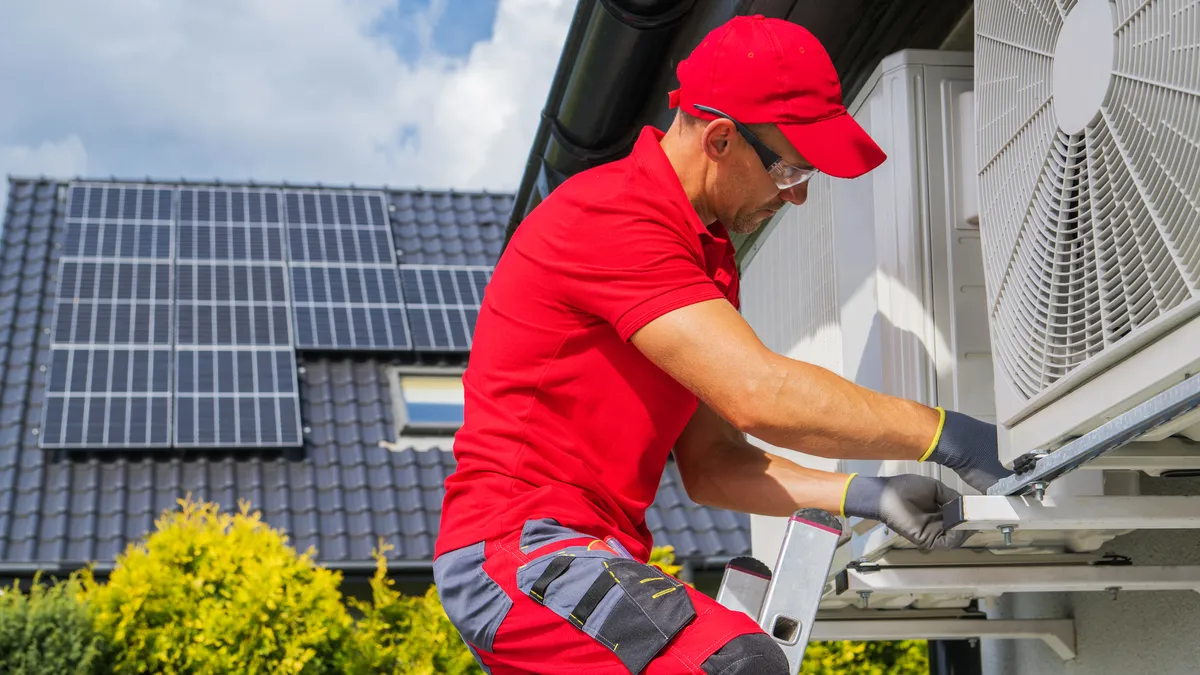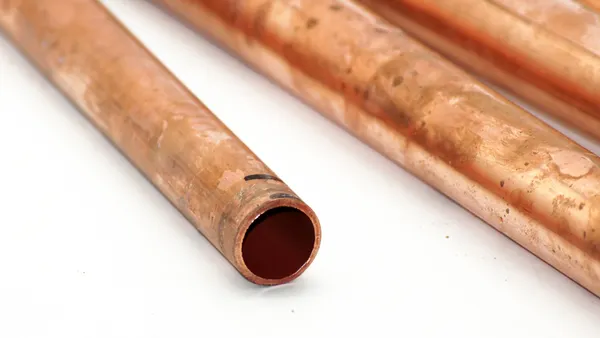Dive Brief:
- Nine states have pledged that zero-emission heat pumps will constitute at least 65% of residential-scale heating, air conditioning and water heating equipment shipments by 2030 and 90% by 2040, the Northeast States for Coordinated Air Use Management, an association of state air quality agencies, announced Feb. 7.
- State environmental agency directors from California, Colorado, Maine, Maryland, Massachusetts, New Jersey, New York, Oregon and Rhode Island signed the memorandum of understanding. The states will collaborate to collect market data, track progress and develop an action plan for widespread residential building electrification.
- Emily Levin, NESCAUM’s senior policy advisor, said the pledge sends a clear market signal that states are committed to building decarbonization, and it will allow for more rapid identification of common research needs and funding opportunities.
Dive Insight:
Today’s announcement builds on a commitment that 25 governors made last fall to quadruple the number of heat pumps in the U.S. by increasing installations across their states to 20 million by 2030.
NESCAUM “wanted our target to be in the same range, very much in line with their target that the governors had already committed to,” Levin said. The goal in today’s MOU focuses on equipment shipments because manufacturers and trade associations track them, while sales to end users are more difficult to track, the MOU notes. It also sets a goal for states to direct at least 40% of efficiency and electrification investments to low-income households facing high energy burdens and communities historically burdened with elevated air pollution levels.
The ball is already rolling on heat pump installations. In 2022, U.S. residential heat pump sales exceeded gas furnaces for the first time. However, Levin noted, “This is long-lived equipment, so we might only get one more crack at it between now and 2050,” when the federal government hopes to achieve a net zero-emissions economy.
The Building Decarbonization Coalition joined several major manufacturing companies in expressing support for the states’ heat pump goals. “Clear commitments provide manufacturers with the business certainty they need to continue to bring a broad range of technologies to market, which will ensure the long-term viability of the building decarbonization transition,” the coalition said in a statement signed by LG, Mitsubishi Electric, Samsung, Trane Technologies, Johnson Controls, Fujitsu Airstage, Carrier and A.O. Smith.
States can support heat pump sales by creating incentive programs, leading by example by installing them in state buildings, supporting workforce training and adopting policies that require heat pump installations, Levin said.
Cities can support heat pump goals with complementary local incentives and policies, such as building performance standards, which require buildings to reduce energy consumption or greenhouse gas emissions over time, Levin added. Cities are also “a particularly important partner for reaching disadvantaged communities,” she said, because they often have relationships with people in those communities.











